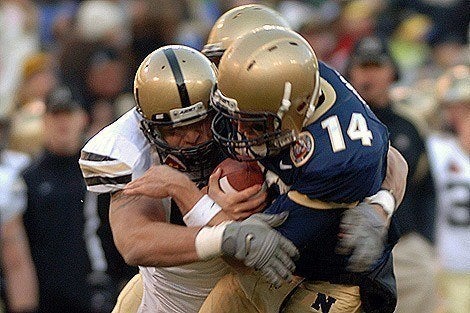For immediate release: Thursday, October 23, 2014
Boston, MA — Though most NCAA colleges and universities have created programs to help athletes deal with concussions, a new Harvard study has found that, when it comes to specific components of those plans, many institutions still lag behind accepted standards.
The study, the first-ever comprehensive examination of how colleges and universities have complied with the Concussion Policy and Legislation adopted by the NCAA in 2010, is based on the results of a survey sent to all 1,066 NCAA member institutions. Of those institutions, 907 schools responded.
The results, according to co-authors Christine Baugh, a student in Harvard’s Health Policy Ph.D. program and Emily Kroshus, a Post-Doctoral Fellow at the Harvard School of Public Health, are mixed.
While more than 90 percent of schools indicated that they have instituted a concussion management plan, the results also suggest that many schools could improve in a number of areas, particularly better education of coaches and athletes on the risks of concussion and increasing sports medicine staffing.
The hope, Baugh and Kroshus said, is that providing evidence that improvement is needed will provide the impetus needed for the NCAA to use its regulatory capabilities to strengthen concussion policies by making regulations more explicit and improving education for both coaches and players.
photo: U.S. Navy Photo by Mass Communication Specialist 2nd Class (SW/AW) Herbert D. Banks Jr.
Learn more
Read a Harvard Gazette article about the study: Mixed results on report on concussions
For more information:
Todd Datz
tdatz@hsph.harvard.edu
617-432-8413
Peter Reuell
preuell@fas.harvard.edu
617-496-8070
